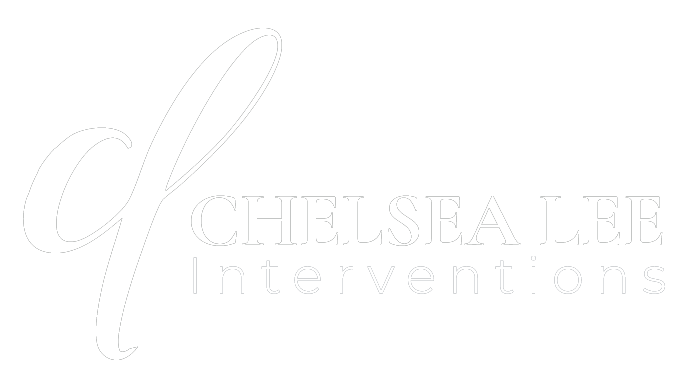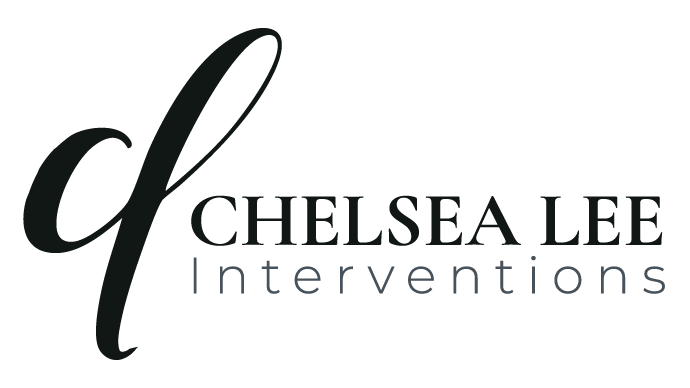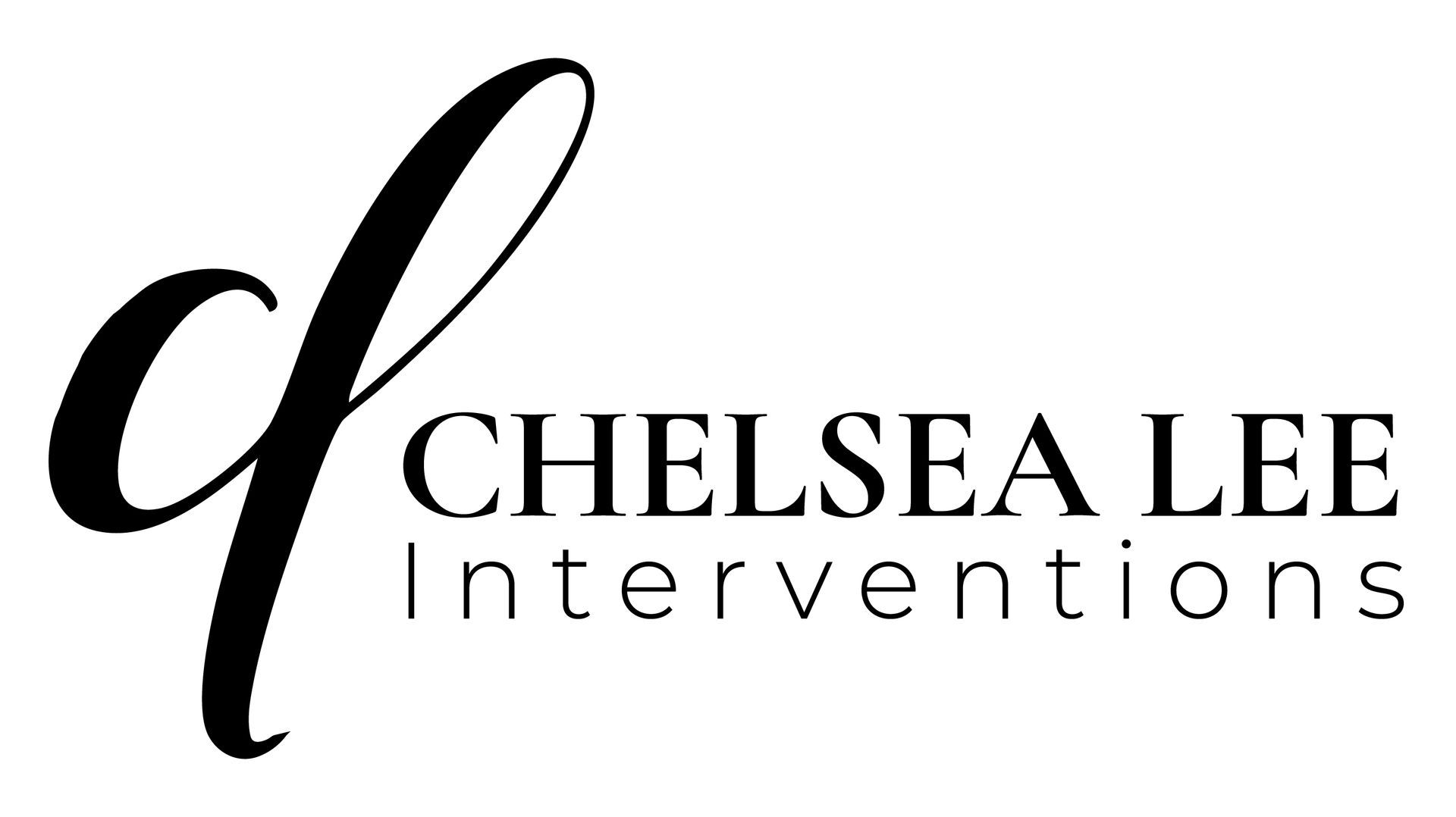5 Signs Your Family Needs Professional Intervention (And Why Waiting Makes Things Worse) - Vancouver BC

Introduction
Watching someone you love struggle with addiction or mental health challenges can feel overwhelming and terrifying. You may find yourself wondering if their behaviour is just a phase, if they'll get better on their own, or if you're overreacting to warning signs that seem to escalate daily.
As an intervention specialist and clinical counsellor in Vancouver who has supported hundreds of individuals through these exact moments, I want you to know this: your instincts matter, your concerns are valid, and recognizing intervention warning signs early can literally save your loved one's life.
The truth is, addiction and mental health crises don't resolve themselves with time or hope alone. They require professional intervention, structured support, and evidence-based treatment. When families wait too long to seek help, the window of opportunity narrows, and the consequences become more severe.
In this comprehensive guide, I'll walk you through five critical warning signs that indicate your family needs professional intervention services immediately, why timing matters more than you think, and how to take action with confidence and compassion. You don't have to navigate this crisis alone, and you shouldn't have to.
Sign #2: Escalating Crisis Situations and Emergency Responses
The second critical warning sign involves increasing frequency or severity of crisis situations that require emergency responses, such as 9-1-1 calls, hospitalization, or police involvement.
These crisis situations might include overdoses, suicide attempts, psychotic episodes, violent behaviour, or medical emergencies related to substance use or mental health challenges. When crisis situations begin occurring monthly, weekly, or multiple times per week, it indicates that current support systems are insufficient.
Mental health emergencies particularly require immediate action because they often involve experiencing a mental health crisis where someone's safety plan has broken down completely. During these moments, families feel helpless watching their loved one cycle between crisis and temporary stability without making lasting progress toward recovery.
What makes this warning sign particularly urgent is that each crisis situation increases the risk of permanent harm, legal consequences, or loss of life. Families cannot sustain ongoing crisis management without professional support, and the person struggling deserves more than emergency responses, they need comprehensive intervention support that addresses underlying causes.
Sign #3: Complete Breakdown of Family Communication and Relationships
The third intervention warning sign occurs when addiction or mental health challenges have completely disrupted family communication, creating chaos, manipulation, or emotional abuse within family relationships.
This breakdown often manifests as constant lying about whereabouts or activities, financial manipulation or theft, verbal or emotional abuse directed at family members, threats of self-harm used to control family responses, or complete withdrawal from family interactions. When someone you love becomes unrecognizable in their behaviour toward family, intervention services become necessary to restore healthy boundaries and communication.
Mental health challenges can also create communication breakdowns when psychosis, severe depression, or anxiety disorders prevent meaningful connection with family members. In these situations, families may feel like they're "walking on eggshells" or unable to have honest conversations about their concerns without triggering aggressive or harmful responses.
Professional intervention provides structure for these difficult conversations, ensuring that both the individual and family members feel heard while working toward solutions. An experienced interventionist can navigate the complex emotions and dynamics present in these situations, helping families move from crisis mode to collaborative problem-solving.
Sign #4: Immediate Risk of Harm to Self or Others
The fourth and most urgent warning sign involves immediate risk of harm to themselves or others, including suicidal ideation, violent behaviour, or life-threatening safety concerns related to substance use or mental health symptoms.
This might include explicit threats of suicide or self-harm, aggressive or violent behaviour toward family members or others, driving under the influence or other reckless behaviours, severe neglect of basic needs like food, shelter, or medical care, or psychotic symptoms that impair judgment about safety.
When families observe immediate risk factors, professional intervention becomes a life-saving measure rather than a treatment preference. Intervention specialists can assess risk levels, develop safety plans, and coordinate immediate treatment options that prioritize stabilization while working toward longer-term recovery goals.
Mental health services and crisis intervention teams work collaboratively with families and interventionists to ensure that high-risk situations receive appropriate responses. This might involve psychiatric evaluation, temporary hospitalization, detox services, or residential treatment, all coordinated through professional intervention rather than family members navigating complex systems independently.
Sign #5: Progressive Isolation and Loss of Functioning
The fifth intervention warning sign involves progressive isolation from support systems and significant loss of functioning in major life areas such as work, relationships, or self-care.
This deterioration often appears gradually, making it harder for families to recognize the severity until functioning has declined dramatically. Warning signs include losing jobs or repeated work problems, ending friendships or romantic relationships, neglecting personal hygiene, living in unhealthy living conditions, abandoning previously enjoyed activities or interests, or withdrawing from family and social support systems.
Mental health challenges and problematic substance use both contribute to this isolation, creating a cycle where the person becomes increasingly disconnected from resources that could support their recovery. Professional intervention breaks this cycle by connecting them with treatment options and support systems specifically designed to address their current level of functioning.
What makes this warning sign particularly concerning is that isolation accelerates the progression of both addiction and mental health symptoms. When someone lacks external accountability and support, their condition typically worsens more rapidly, making intervention more urgent rather than less necessary.
Why Waiting Makes Things Worse: The Cost of Delayed Intervention
Many families believe that waiting for their loved one to "hit bottom" or become ready for help represents patience and respect for autonomy. However, research consistently shows that delayed intervention leads to more severe consequences and reduces treatment success rates.
Addiction is a progressive disease, meaning symptoms worsen over time without intervention. What begins as concerning behaviour escalates to crisis situations, medical emergencies, legal problems, or loss of life. Mental health challenges follow similar patterns, with untreated symptoms typically becoming more severe and harder to address as time passes.
From a family perspective, delayed intervention creates ongoing trauma for everyone involved. Parents, spouses, and children living with active addiction or untreated mental health challenges experience chronic stress, anxiety, and emotional distress that affects their own health and functioning. The entire family system becomes organized around crisis management rather than healthy relationship building.
Professional intervention interrupts this progression by providing immediate access to appropriate treatment options, crisis stabilization, and family support services. Rather than waiting for motivation to develop naturally, intervention creates conditions that make treatment acceptance more likely while addressing immediate safety concerns.
The Vancouver Advantage: Local Resources and Professional Support
Vancouver's treatment landscape includes both public and private options for detox, residential treatment, outpatient counselling, and ongoing support services. Professional interventionists maintain relationships with these facilities, helping families navigate the system and access appropriate care based on individual needs and circumstances.
What sets Vancouver apart is the integration between crisis services, intervention specialists, and treatment providers. This collaborative approach means that families don't have to coordinate complex systems independently, professional intervention and case management provides a single point of contact that manages all aspects of the process.
How Professional Intervention Works: Beyond Television Portrayals
Real professional intervention differs significantly from dramatic television portrayals. Evidence-based intervention focuses on compassionate communication, family education, and collaborative problem-solving rather solely on confrontational tactics.
The process typically begins with a comprehensive assessment of the situation, including substance use or mental health history, previous treatment attempts, family dynamics, and immediate safety concerns. This assessment informs the intervention approach, ensuring that strategies align with individual needs and circumstances.
Professional intervention also includes extensive family preparation, helping loved ones understand their role in supporting recovery while establishing healthy boundaries. This preparation is crucial because family dynamics significantly influence treatment outcomes and long-term recovery success.
Most importantly, professional intervention connects individuals with appropriate treatment options immediately. Rather than hoping they'll accept help "someday," intervention creates a clear pathway from the intervention conversation to treatment enrolment, removing barriers that might prevent follow-through.
Recognizing Mental Health Emergencies vs. General Concerns
Understanding the difference between general mental health concerns and situations requiring immediate intervention can be life-saving for families navigating these challenges.
Mental health emergencies involve immediate risk factors such as suicidal ideation, psychotic symptoms, severe depression preventing basic functioning, panic attacks that interfere with daily activities, or substance use creating medical complications. These situations require immediate professional response rather than waiting for regular appointment availability.
General mental health concerns, while still important, can often be addressed through routine counselling, support groups, or lifestyle changes. The key distinction lies in the immediacy of risk and the level of functional impairment present.
Professional interventionists are trained to assess risk levels and recommend appropriate responses, ensuring that true emergencies receive immediate attention while connecting families with ongoing support for longer-term concerns.
Creating Safety Plans: Immediate Steps for Families
When families recognize intervention warning signs, creating immediate safety plans becomes essential while arranging professional support.
Safety planning involves identifying specific triggers or situations that escalate crisis risk, establishing clear communication protocols for family members, removing access to means of self-harm if suicidal ideation is present, developing emergency contact lists including crisis lines and professional services, and creating structure around daily activities and supervision.
These safety plans serve as bridges between recognizing the need for intervention and accessing professional services. They're not long-term solutions, but they can prevent immediate crises while families arrange appropriate support.
Professional intervention specialists help families develop comprehensive safety plans that address specific risks while maintaining dignity and respect for the individual experiencing difficulties.
The Role of Family in Supporting Intervention Success
Family involvement significantly influences intervention outcomes, but the specific role of family members requires careful consideration and professional guidance.
Effective family support involves learning about addiction and mental health challenges, participating in family therapy or individual therapy, connecting with support groups, establishing healthy boundaries while maintaining emotional connection, and following through with consequences and support as outlined in the intervention plans.
However, family members cannot serve as primary treatment providers or interventionists for their loved ones. The emotional intensity and relationship dynamics present in families make it difficult to maintain the objectivity and structure necessary for effective intervention.
Professional intervention specialists help families identify their appropriate role while ensuring that the person struggling receives expert support for their specific challenges.
Treatment Options and Next Steps After Intervention
Successful intervention creates immediate access to appropriate treatment options tailored to individual needs and circumstances.
Treatment might include detox services for substance use, psychiatric evaluation and medication management for mental health challenges, residential treatment programs for intensive support, outpatient counselling for ongoing therapy, or support groups for peer connection and accountability.
The specific treatment plan depends on factors such as severity of symptoms, previous treatment history, family support availability, insurance coverage, and individual preferences. Professional intervention coordinates these decisions, ensuring that treatment recommendations align with assessed needs rather than availability or convenience.
Most importantly, intervention includes ongoing support during the transition to treatment and after the individual struggling accepts help. This helps both the individual and family navigate the early stages of recovery when motivation and commitment may fluctuate.
Supporting Your Own Mental Health During Family Crises
Families experiencing addiction and mental health crises often neglect their own mental health needs while focusing entirely on their loved one's situation.
This pattern is understandable but ultimately counterproductive, as family members need emotional stability and coping resources to provide effective support. Self-care during these situations might include individual counselling to process complex emotions, support groups for families affected by addiction or mental health challenges, stress management techniques such as meditation or exercise, and maintaining connections with friends and activities outside the crisis situation.
Professional intervention often includes family therapy components that address the impact of addiction or mental health challenges on all family members, not just the individual receiving primary treatment.
Frequently Asked Questions About Intervention Warning Signs
How do I know if concerning behaviour requires professional intervention, or if I should wait and see if it improves?
If behaviour involves immediate risk of harm, repeated crisis situations, or complete breakdown of functioning, professional intervention is likely necessary. When in doubt, consultation with an intervention specialist can help assess the situation and recommend appropriate responses.
What if my loved one has refused help or treatment in the past, or becomes angry when we suggest it?
Resistance to treatment is common and doesn't indicate that an intervention won't be successful. Professional interventionists are trained to work with resistance and can often help individuals become more open to treatment through specialized communication techniques.
How much does a professional intervention cost and is it covered by insurance?
The cost of a professional intervention can vary significantly depending on several factors, including the complexity of the case, the level of case management required, and logistical considerations such as travel and coordination with family members or treatment centres.
Since every situation is unique, it is recommended that you reach out for a personalized consultation to better understand the services involved and receive a tailored estimate based on your specific needs. In most cases, interventions themselves are not covered by insurance. It is recommended to check directly with your insurance provider to understand what aspects of treatment may be covered and if any reimbursement is available.
What happens if an intervention doesn't result in immediate treatment acceptance?
Even when individuals don't accept treatment immediately, professional intervention often plants seeds that lead to treatment acceptance later. Additionally, intervention provides families with tools and support for ongoing situations. According to the Association of Intervention Specialists (AIS), 80–90% of interventions result in the individual entering treatment immediately. Among the remaining 10–20% who do not go directly into treatment, approximately half do within the following weeks.
How do I find a qualified intervention specialist in Vancouver?
Look for interventionists with clinical training, certification through professional organizations, and experience with situations similar to your family's needs.
What's the difference between an intervention and family therapy?
An intervention is a structured process designed to help a loved one recognize the need for treatment and agree to get help. It typically takes place before the individual has entered any kind of treatment and is facilitated by a professional interventionist. The goal is immediate: to motivate the person to accept care for addiction or mental health concerns.
Family therapy, on the other hand, is a therapeutic process that usually begins after treatment has started or once a person is in recovery. Led by a licensed therapist, family therapy focuses on improving communication, addressing unhealthy patterns, processing emotions, and strengthening relationships within the family system. While an intervention is about initiating the recovery journey, family therapy supports long-term healing and growth for everyone involved.
Can an intervention work for mental health challenges, or is it only for addiction?
Professional interventions are effective for both addiction and mental health challenges. The specific approach may vary, but the goal of connecting individuals with appropriate treatment remains the same.
What if there are multiple family members who disagree about whether intervention is necessary?
Professional consultation can help families work through disagreements and reach consensus about appropriate responses. Education about addiction and mental health, and addressing stigma, often helps family members understand the urgency of the situation.
How quickly can intervention services be arranged when warning signs appear?
Many intervention specialists offer immediate emergency consultation, within 24 hours, when safety concerns are present. Initial assessment can often be completed quickly to determine immediate needs.
What should I do if I recognize these warning signs but don't know where to start?
Contact a professional intervention specialist for consultation. They can assess the situation, provide immediate guidance, and help coordinate appropriate responses based on specific circumstances and needs.
Summary and Next Steps: Taking Action with Confidence
Recognizing warning signs in your loved one represents both a heartbreaking realization and a crucial opportunity to connect them with life-saving support. The five critical signs we've explored, repeated treatment failures, escalating crisis situations, communication breakdown, immediate risk of harm, and progressive isolation, all indicate that professional intervention can provide the structure and expertise your family needs.
Remember that seeking professional intervention isn't giving up on your loved one or admitting failure as a family. Instead, it demonstrates profound love and commitment to their wellbeing, along with the wisdom to recognize when expert support becomes necessary.
The most important step you can take right now is reaching out for professional guidance. Whether you're observing one warning sign or several, consultation with an experienced intervention specialist can help you understand your options and develop a plan that prioritizes safety while working toward lasting recovery.
Your loved one's life may depend on the actions you take in the coming days and weeks. Trust your instincts, honour your concerns, and know that help is available. You don't have to navigate this crisis alone, and with proper support, healing and recovery are absolutely possible.
If you're ready to explore how professional intervention can support your family's journey toward healing, I invite you to schedule a free 30-minute consultation. Together, we can assess your situation, answer your questions, and develop a clear path forward that honours both your love for your family member and their need for expert care.
Contact Chelsea Lee - Addiction and Behavioural Interventions 📞 Phone: +1 (778) 858-0042 📧 Email: info@chelsealee.ca 🌐 Website: www.chelsealee.ca 📍 Serving Vancouver, BC and travel throughout Canada
Available 24 hours for crisis consultation and emergency intervention services.

Chelsea Lee, MPCC
Licensed Master Practitioner in Clinical Counselling & Certified Interventionist
I am a Licensed Master Practitioner in Clinical Counselling and Certified Interventionist with over 20 years of experience helping families navigate the challenges of addiction and mental health. My approach combines professional training with my own lived experience, allowing me to provide not just expertise, but also genuine understanding and compassion. My goal is to walk alongside families, offering hope, healing, and practical support as they work toward recovery and lasting change.

Reclaim Your Peace of Mind
Book your free consultation now and discover the support you deserve.








